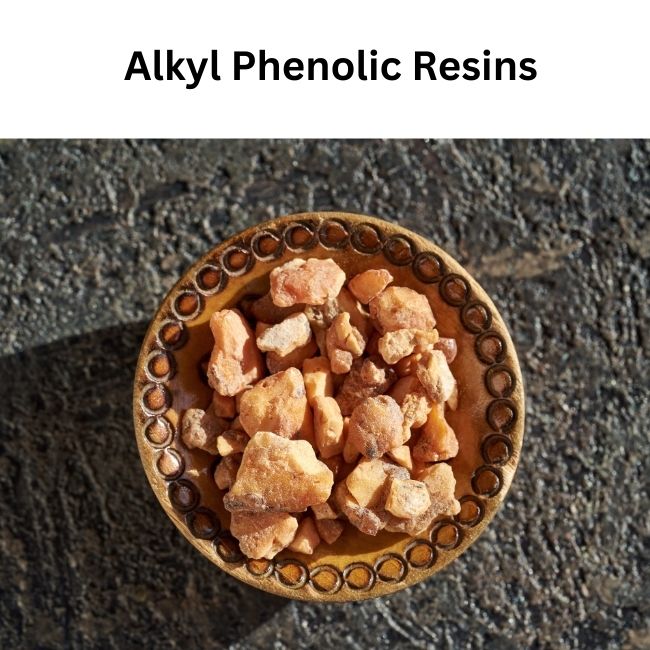
In a range of industrial applications, the demand for adhesives that offer superior performance and long-lasting durability is ever-increasing. Alkyl phenolic resins are widely recognized for its adhesive properties and are used extensively in both the automotive and leather goods industries. These resins have the ability to form strong and durable bonds under a variety of conditions, making them essential in automotive manufacturing and leather production. The methylol groups present in Alkyl Phenolic Resins play a significant role in curing speed, bond strength and flexibility – all crucial aspects when it comes to automotive and leather adhesives.
In this article, we will explore into the importance of methylol content in Alkyl Phenolic Resins and explain how it directly contributes to the efficiency of adhesives used in automotive and leather applications.

Alkyl Phenolic Resins with Methylol Content Influences Automotive Adhesives
Automotive manufacturing is a highly demanding industry, requiring the use of adhesives that can withstand extreme conditions like high temperatures, vibrations and exposure to harsh chemicals. Alkyl Phenol Resins are frequently used in automotive adhesives due to its excellent bonding capabilities and long-lasting performance.
1. Faster Curing Times for Enhanced Efficiency
In automotive manufacturing, speed is of the essence. Adhesives need to cure quickly to ensure that production lines move smoothly. Alkyl phenolic resins with higher methylol content cure faster, resulting in a quicker turnaround time. This rapid curing allows assembly lines to run at full capacity, ensuring that production schedules are met without compromising the quality of the adhesive bond.
- Increased Productivity: By reducing curing time, production can occur at a faster rate, which improves overall efficiency and throughput.
- Consistent Results: With more controlled curing times, each adhesive bond formed is of consistent quality, ensuring uniform strength and adhesion across all automotive components.
2. Alkyl Phenolic Resins Improves Bond Strength and Durability
Automotive parts are exposed to a wide range of stresses, including temperature fluctuations, vibrations and physical impacts. These resins with higher methylol content enhance the cross-linking process during curing, resulting in a more robust and durable bond. This higher bond strength is essential in ensuring that parts stay securely attached, even under extreme conditions.
- Stronger Bonding: The increased methylol content enhances the resin’s ability to form tight, lasting bonds between substrates, making it ideal for automotive parts that are subject to constant stress.
- Heat Resistance: Automotive adhesives are exposed to high temperatures and resins with higher methylol content are more resistant to heat. This helps the adhesive maintain its integrity even in hot environments, preventing breakdowns in bond strength.
3. Resistance to Environmental Factors
Automotive adhesives must also resist the damaging effects of environmental factors, such as moisture, salt and various chemicals. The cross-linked structure created by methylol groups improves the resin’s stability, ensuring it holds up well in harsh conditions.
- Moisture Resistance: Methylol content significantly enhances the resin’s ability to resist water and moisture. This is particularly important for automotive adhesives, which may be exposed to rain, humidity or road salt during the vehicle’s lifetime.
- Chemical Resistance: Alkyl phenolic resins with a higher level of methylol content also exhibit greater resistance to chemicals, such as oils, solvents and fuels. This helps prevent the adhesive bond from weakening or breaking down when exposed to automotive fluids and other harsh substances.

How Methylol Content in Alkyl Phenolic Resin Benefits Leather Adhesives?
Leather is a versatile material widely used in the production of goods such as shoes, bags and upholstery. Leather adhesives must provide strong bonds while still allowing for the material’s flexibility. Methylol content in Alkylated phenolic resin is critical in ensuring that leather adhesives strike the perfect balance between strength and flexibility.
1. Alkyl Phenolic Resins Offers Flexibility and Strength for Leather Goods
Leather products undergo frequent bending, stretching and flexing. This requires adhesives that can maintain their bond without cracking or breaking. Alkyl phenolic resins with the right content allow the adhesive to form cross-links that provide flexibility without sacrificing bond strength. This ensures that leather goods can withstand bending and stretching while maintaining a durable bond.
- Elasticity for Leather Products: Methylol content in the resin enhances the adhesive’s ability to stretch and flex, making it ideal for leather items such as shoes and bags, which experience constant movement.
- Durability Over Time: The cross-linking process ensures that the adhesive maintains its strength even after prolonged use, ensuring that leather products remain intact for an extended period.
2. Moisture and Oil Resistance for Leather Products
Leather goods are often exposed to moisture, oils and dirt, all of which can degrade the adhesive bond over time. These resins with proper content provide enhanced resistance to these substances, ensuring that the adhesive maintains its bond strength even under challenging conditions.
- Waterproofing: Methylol content improves the adhesive’s ability to resist water, preventing moisture from breaking down the bond. This is particularly important for leather footwear and accessories that are exposed to rain or sweat.
- Oil Resistance: Leather goods, can often come in contact with oils and greases. It can ensure the adhesive remains unaffected by these substances, helping maintain the integrity of the bond even when exposed to oils and other contaminants.
3. Alkyl Phenolic Resins Supports Long-Term Durability
Leather products are subjected to repeated use, which can cause wear and tear over time. Adhesives used in leather goods must be durable enough to withstand constant handling and exposure to various stressors. Phenolic binder resins with the right amount of methylol content ensure that the bond remains intact over the long term, preventing delamination or bond failure as the leather ages.
- Longevity: The appropriate level ensures that the adhesive bond lasts for years, keeping leather products intact even after extensive use.
- Wear Resistance: Methylol-enhanced resins offer greater resistance to abrasion, which is crucial for leather goods that endure frequent handling, such as handbags, shoes and upholstery.

Conclusion
Methylol content plays a pivotal role in determining the performance of adhesives in both automotive manufacturing and leather goods production. By influencing curing speed, bonding strength and flexibility, as well as improving resistance to environmental factors, the right amount of methylol content ensures optimal adhesive performance in demanding applications. Whether working with automotive parts that require durable, high-strength bonds or leather goods that need flexible yet robust adhesive solutions, importance of methylol content is key to achieving high-quality and reliable results.
- Tridev Resins: Delivering High-Performance Synthetic Resins for Diverse Industrial Applications
- How Different Solid Content Levels in Water-Based Acrylic Emulsion Affect Performance?
- Polyamide Resins in the Printing Industry: Enhancing Performance for Specialized Inks on Challenging Surfaces
- Why Methylol Content Matters in Alkyl Phenolic Resins for Automotive and Leather Adhesives?
- How Rosin Modified Phenolic Resins Contribute to Long-lasting and Stable Printing Ink Formulations?



